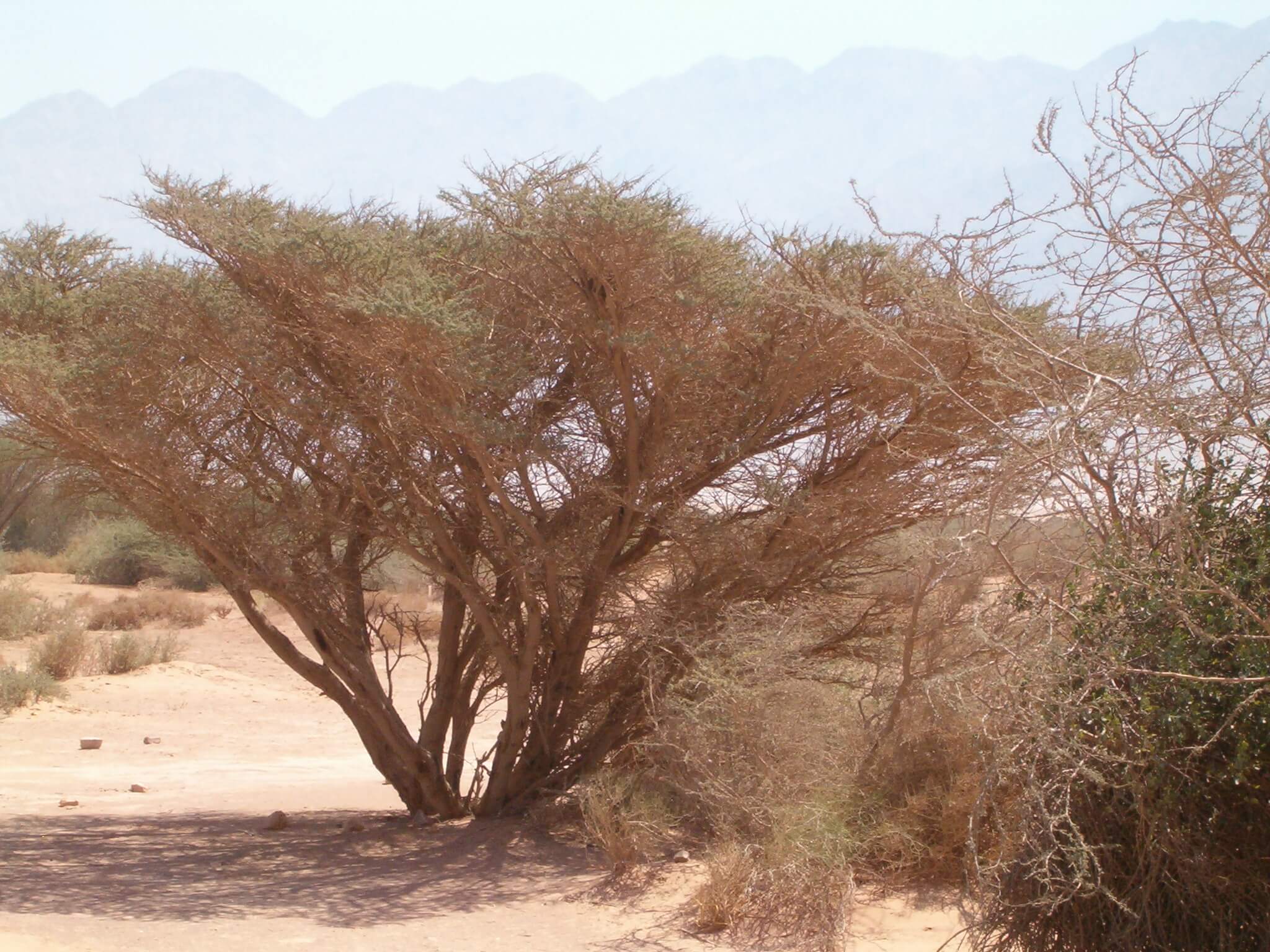A new UN report indicates that lawmakers around the world only look at the immediate economic benefit that can be derived from nature - and ignore its value in aspects that are harder to quantify in numbers, such as its effect on the psyche and its cultural role. Is it even possible to put a price tag on the feeling of "green in the eyes", or on the technological developments that nature provides us?
Inbar Naaman, Angle - Science and Environment News Agency
Imagine that a stream full of life was flowing near your house. You are lucky and you live in one of the rare places that have not yet been overrun by urban development. How much was it worth to you? The first thought will surely be about the real estate value of the land, or the entrance fees that can be collected from visitors to the place - both have an economic value that is relatively easy to calculate. But how much, for example, is the ability to send the children to wade in the cool water on hot summer days worth? Is it possible to measure in shekels the pleasure of sitting in front of the stream in the evening, and listening to the gentle and soothing lapping? Unfortunately, the economic measurement does not leave much room to deal with the importance of what cannot be put a price tag on.
The climate crisis that is getting worse every year forces us to reexamine our relationship with the environment. But rather A report recently published by the UN Indicates that legislators around the world still place the emphasis on the immediate benefit that can be derived from the utilization of natural resources and its contribution to economic growth (such as the use of natural resources for food purposes, for example) - and neglect the many services that the ecosystem provides us and which are more difficult to quantify, such as the mental and cultural impact and nature's health.
"Legislators tend to make decisions based on simplistic indicators, which can be scientifically quantified," writes Prof. Unai Pascual, one of the heads of the committee that compiled the new report. "This approach misses what the social sciences and the humanities have to teach us about our relationship with the environment."

To assist legislators in making decisions that take into account the full value of nature, including the aspects that are more difficult to quantify, the report offers four approaches for examining the value of the environment, which are in use and correct for different people. The authors of the report emphasize that people may see value in nature according to more than one approach.
If we return to Nahal from the beginning of the article, the "Life מThe nature" presented in the report will emphasize the edible fish that live in the stream, and their value in the market. As mentioned, this approach is already being used by various legislators today. "Life" approach בNature", on the other hand, emphasizes the importance of our sense of belonging to nature, our cultural affinity to it and the health benefits of living in nature. The third approach, "Life Beside Nature", which is motivated by a desire to protect nature, emphasizes the importance that many people place on ecological diversity, and examines the value of the stream for the creatures living in its waters. Finally, the "life" approach as part From nature" looks at man as a part of nature, on a physical, mental and spiritual level.
We are not the center of the universe
Being in nature can be an awe-inspiring experience - in front of its beauty and power. Take for example the giant sequoia trees that grow in North America. The tree known as "General Sherman", which grows in the Sequoia National Park in California, rises to a height of 83 meters, and attracts visitors every year Almost 2 million visitors. The astonishment in front of the huge tree, whose age is estimated at 2,700-2,200 years, reminds us that there are things much bigger than us - literally and metaphorically.
The awe and humility that the power of nature inspires in us has real effects on our social behavior, and on our sense of belonging to the local and human community. For example, research in social psychology published in 2015 showed that marveling at nature contributes to positive social behavior: subjects who watched a spectacular nature film showed greater generosity in a group game. Further research from 2021 Find a connection between the existence of green spaces in the urban environment and a decrease in violent crime rates. The researchers suggest that this relationship stems from the ability of being in nature to instill peace in us, as well as to stimulate a sense of community affinity. Simply put - being close to nature reminds us that we are not the center of the universe as individuals or as a human society, and pushes us to behave accordingly.
Landscape template of his homeland
Anthropologist Dr. Liron Shani from the School of Sociology and Anthropology at the Hebrew University, born in Moshav Ein Yahav in the Arava, says that around Acacia trees that characterize the landscapes of the Arava (and also appear on the emblem of the local regional council) creates a connection with nature whose value is difficult to assess in economic terms. According to him, about a decade ago the death of many acacia trees was detected - and the residents of the Arava and scientists called for their help.

"In retrospect, it turned out that the identification was inaccurate, but the concern created momentum for the protection of the acacia tree, and motivated proactive activity with KKL-Junk to plant and grow acacia trees," says Shani. "Following this move, it will become more difficult to uproot acacia trees near agricultural lands. Although there was no ecological reason to prevent the displacement, the issue became emotional among residents and farmers."
Biodiversity provides a variety of solutions
Prof. Avigdor Abelson, a marine ecologist from the School of Zoology and Life Sciences at Tel Aviv University, offers another angle to the benefit that man derives from nature, which ignites the imagination: the possibility of developing technologies that are based on nature. "In recent decades, a fabric technology inspired by the skin of the shark was developed, which allows the fish to save energy when it moves in the water - and it was used to create swimwear for professional swimmers," he says. Olympic swimmer Michael Phelps wore a swimsuit with "shark skin" technology When she competed in the 2008 Beijing Olympics, in which he won a record number of eight gold medals - and he attributed a part of his Olympic success to technology, in fact, recently, following data that showed that the "shark skin" gives its wearers an unfair advantage over the competitors, the International Federation for Competitive Swimming decided to ban the use of these swimwear.
The benefit of being inspired by nature is not limited to helping athletes, and according to Abelson, it may also provide solutions to one of the most burning issues of today - the search for a green energy source. One of the technologies being researched today as part of this search is Nuclear fusion energy, which is carried out by the fusion of two nuclei of hydrogen atoms into one atomic nucleus of helium (the mechanism through which the energy that lights up the sun is created). However, to set the process in motion a heat of tens of millions of degrees Celsius is needed, and today science does not have the ability to create such conditions in a controlled manner. "A few months ago, researchers at the University of Oxford announced that they had succeeded in imitating the The gun's trigger mechanism, which emits heat at a temperature of over 1,000 degrees Celsius," says Abelson. "They claim that this discovery may be a breakthrough in the transition to fusion energy."

Another benefit that man may derive from nature is in the medical aspect. "In recent years, the elephant's genome has been studied, which includes mechanisms that regulate cell culture - and lower the chance of getting cancer," says Abelson. "If we exterminated the elephants as we exterminated the mammoths in the past, we would not have been able to discover these mechanisms, and we would not have reached this knowledge that may help in the future to treat cancer."
"I can think of countless examples of inspiration we draw from nature: from camouflage technologies to architectural principles," says Abelson. According to him, the multitude of possibilities that lie in nature illustrates our need to preserve biological diversity. "We are unable to imagine what technological benefits we can derive from studying mechanisms in nature - and if we focus on short-term benefits, we may lose valuable knowledge in the future," he concludes.
More of the topic in Hayadan:
